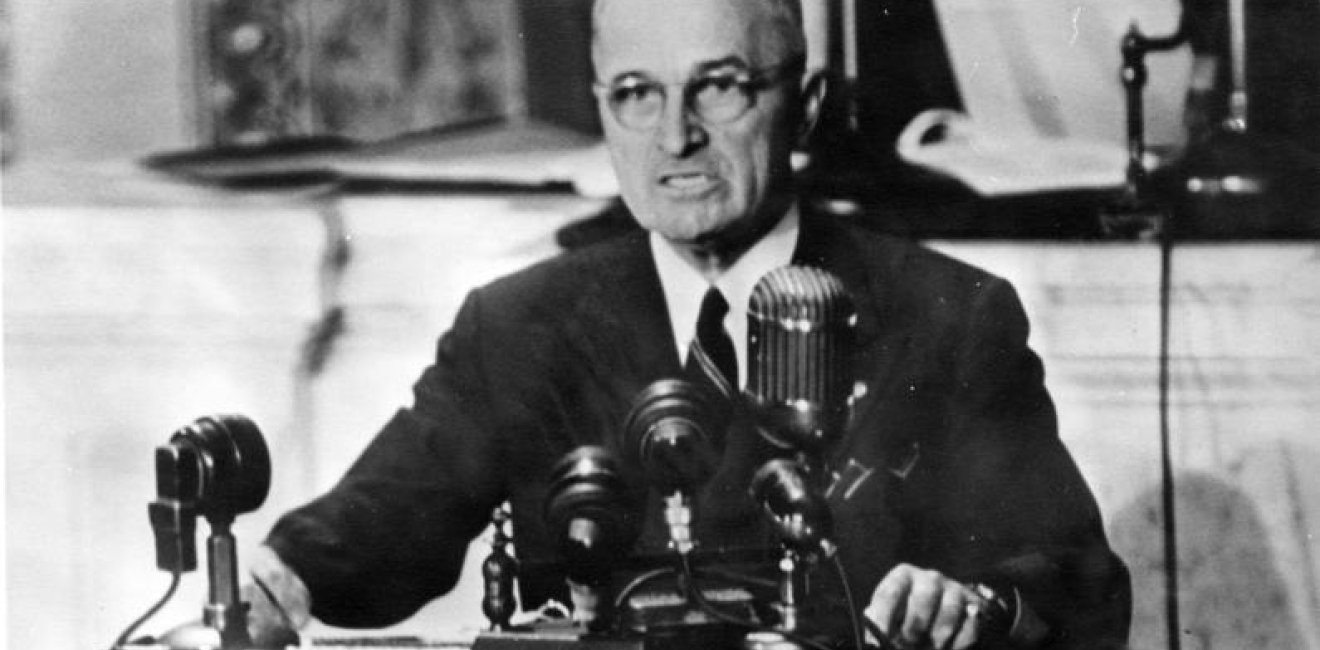
A blog of the History and Public Policy Program

Truman Doctrine Announced Seventy Years Ago
On April 12, 1947, President Harry Truman advocated on behalf of Turkey and Greece in front of the US Congress. His speech, “Recommendation for Assistance to Greece and Turkey,” was a show of commitment to non-communist governments, and its content laid the groundwork for the Truman Doctrine and communist containment, a policy that would dominate US Cold War strategy for the next 40-plus years.
Often cited as the official beginning of the Cold War, the Truman Doctrine helped to crystallize the new post-World War II era, characterized by contentious relations between the two superpowers and former allies, as well as a more muscular US foreign policy dedicated to curtailing communism on a global scale.
Truman’s speech to a joint session of the Senate and the House of Representatives outlined precisely why the United States should commit financial and economic support to Greece and Turkey and ensure that neither country fell under communist control. Truman painted a dire financial portrait of postwar Greece and linked the country’s economic instability to the likelihood of communist takeover. Truman saw the potential spread of communism in Greece on an international scale, claiming it was a development that would upset world order.
The 33rd American President capped his speech to Congress by reinforcing that the United States was an advocate for liberal democracy around the world, and possibly the only thing standing between democracy and the spread of communism:
We shall not realize our objectives, however, unless we are willing to help free peoples to maintain their free institutions and their national integrity against aggressive movements that seek to impose upon them totalitarian regimes. This is no more than a frank recognition that totalitarian regimes imposed on free peoples, by direct or indirect aggression, undermine the foundations of international peace and hence the security of the United States.
Truman thus positioned the US as a democratic bulwark against the growing tide of communism and as a hero protecting the postwar geopolitical landscape.
Author
Explore More in Sources and Methods
Browse Sources and Methods
Energy and the Fall of Détente

Kissinger, Dobrynin, and the End of the Vietnam War

